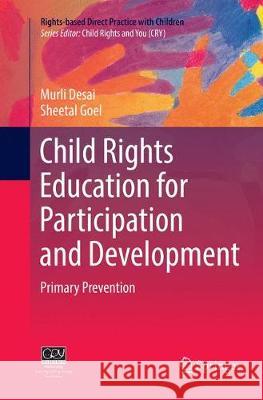Child Rights Education for Participation and Development: Primary Prevention » książka
topmenu
Child Rights Education for Participation and Development: Primary Prevention
ISBN-13: 9789811342974 / Angielski / Miękka / 2018 / 342 str.
Kategorie:
Kategorie BISAC:
Wydawca:
Springer
Seria wydawnicza:
Język:
Angielski
ISBN-13:
9789811342974
Rok wydania:
2018
Dostępne języki:
Numer serii:
000813512
Ilość stron:
342
Oprawa:
Miękka











